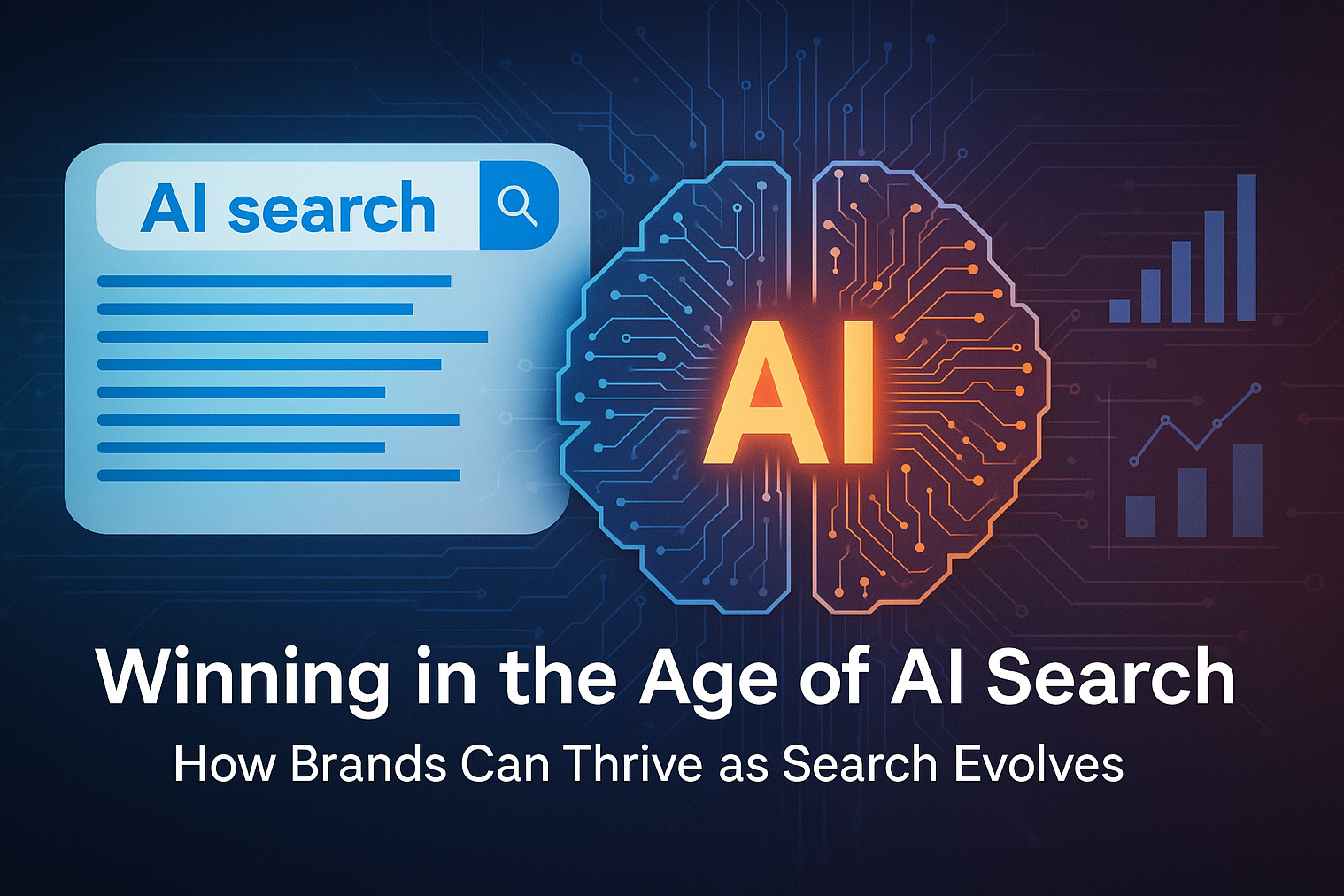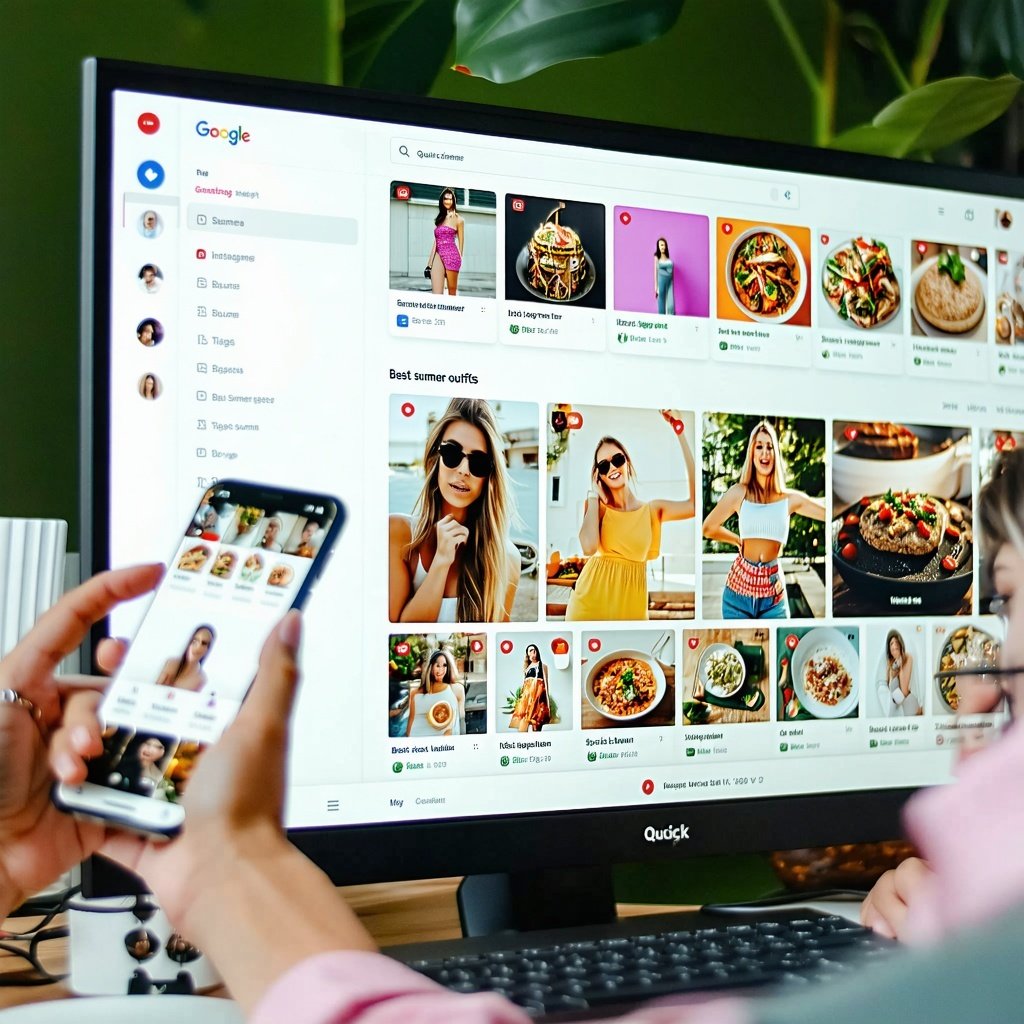Winning in the Age of AI Search: How Brands Can Thrive as Search Evolves
Search is changing faster than ever. With the rise of AI-powered features like Google’s AI Overviews and AI Mode, the familiar “10 blue links” are...
Read moreBeth Rimmer runs through the six key areas for any search engine optimisation strategy, including the importance of strategic management, all-important tech and content considerations, and why every SEO strategy should incorporate social media marketing.
One of the greatest benefits of working with an SEO agency is that it should provide you with an expert extension of your internal digital team. The strategy your agency puts together should cover a wide base of SEO elements - including technical SEO, content marketing and social media strategy - to drive your online business organically.
Read on to discover the six key areas we believe every SEO agency should be focusing on to drive client visibility. Use this as your ultimate SEO checklist to appraise how well your current agency is serving you.
First things first, any SEO agency will need to factor in plenty of time for strategic account management and reporting. This is especially important to allow your account manager to effectively plan your strategy according to your key business objectives and internal digital calendar.
Another huge part of the strategic SEO element is regular communication between you and your agency; they need to know any internal events, campaigns and website changes as soon as possible to amend the strategy accordingly. Working alongside this, frequent reviews are vital to ensure your SEO strategy is performing to the KPIs and targets.
Technical SEO is a vital element of any best practice strategy. Technical issues can affect a website’s usability for both the user and crawler, so regular auditing is key.
A full technical audit should be completed at the start of any new agency relationship, and then again whenever a site goes through a major development change, to ensure any issues are picked up and corrected as soon as possible. Following an audit, on-going monthly technical checks by your agency will help to keep on top of any errors such as incorrect internal redirects or broken links.
Continuously monitoring technical performance will mean that your SEO activities are not delayed by any technical errors.
Content has always been a huge part of SEO. We all know relevant keywords on a websites help to drive organic visibility. Therefore, detailed keyword research is key for content, and should be updated regularly due to search volume changes with seasonality and trends.
SEO agencies should also look at what their clients’ competitors are doing too. A detailed competitor content analysis will highlight the gaps and opportunities for new content, pages and creative pieces.
From the keyword research and competitor analysis, your agency should be able to present a content strategy that includes content creation, content optimisation and, where relevant, a blog strategy to help drive long-tail keywords and garner greater client engagement.
Even before the big release of Google’s Algorithm Penguin 4.0, SEOs knew how important it is to monitor all external backlinks and regularly review against Google’s guidelines. With Penguin now updating in real-time, it is even more important to audit all backlinks effectively. This is so you can identify and remove any domain linking to your website that is not adhering to Google’s best practice guidelines.
When starting a new SEO agency relationship, a full backlink audit should be completed early on. This should be followed by regular monthly/bi-monthly new backlink checks (the frequency will be dependent on the scale of new backlinks received) to make sure all new backlinks follow the guidelines.
Your SEO strategy should be creative too! Assets such as keyword optimised eBooks and Infographics provide great resources to showcase your business as experts, while also benefiting your organic keyword visibility.
Your agency should spend time with you reviewing your current assets and brainstorming ideas for future content and creative assets, analysing where they should sit within the marketing funnel and then crafting them to appeal to specific target personas. The end result should be a detailed content calendar that will provide evergreen and topical content.
Assets can then be used for distribution and outreach to bloggers and industry websites. Plus, creative pieces are great for social sharing and encouraging user engagement.
Social is such a huge ranking factor now and your agency needs to be incorporating this into your SEO strategies. Here at ClickThrough we have an integrated SEO and Social Media Department, as we understand how important it is to work with one team that has a full understanding of your online marketing presence.
Social really launched into SEO back in 2014 when the Search Metrics Ranking Factors were released by industry experts. Social engagement and following was so high up on the list that it became a necessary part of SEO strategies.
Your strategy should include regular posts by planning ahead using a social media calendar, targeting posts towards your buyer personas on the most relevant platforms to try and build up your followers and engagement.
Top tip: don’t forget Google+
Even if the platform doesn’t have its own posting strategy, it’s still worth having a profile live and keeping momentum by using posts from your other platforms, simply because it’s owned by Google, and let’s face it, Google will love it!
Find out more about the ClickThrough best practice approach to SEO. View our 10 Pillars of SEO Strategy to discover how we help our clients identify gaps and make improvements to increase site visibility.
More articles you might be interested in:

Search is changing faster than ever. With the rise of AI-powered features like Google’s AI Overviews and AI Mode, the familiar “10 blue links” are...
Read more


Arming yourself with the right tools to ensure a smooth site migration is important - find out how to protect your SEO during a migration today.
Read more
Google employees have recently announced that the upcoming Google Core Update is set to be released in the coming weeks. Understanding and addressing...
Read more
Language matters. Any marketer worth their salt knows this. But when discussing gender and sexual orientation, that importance is amplified tenfold.
Read more
When marketers think of thought leadership, there are names rather than ideas, that tend to spring to mind.
Read more
With the release of GPT-4, how revolutionary will this tool be? Alan Rowe takes us through it...
Read more